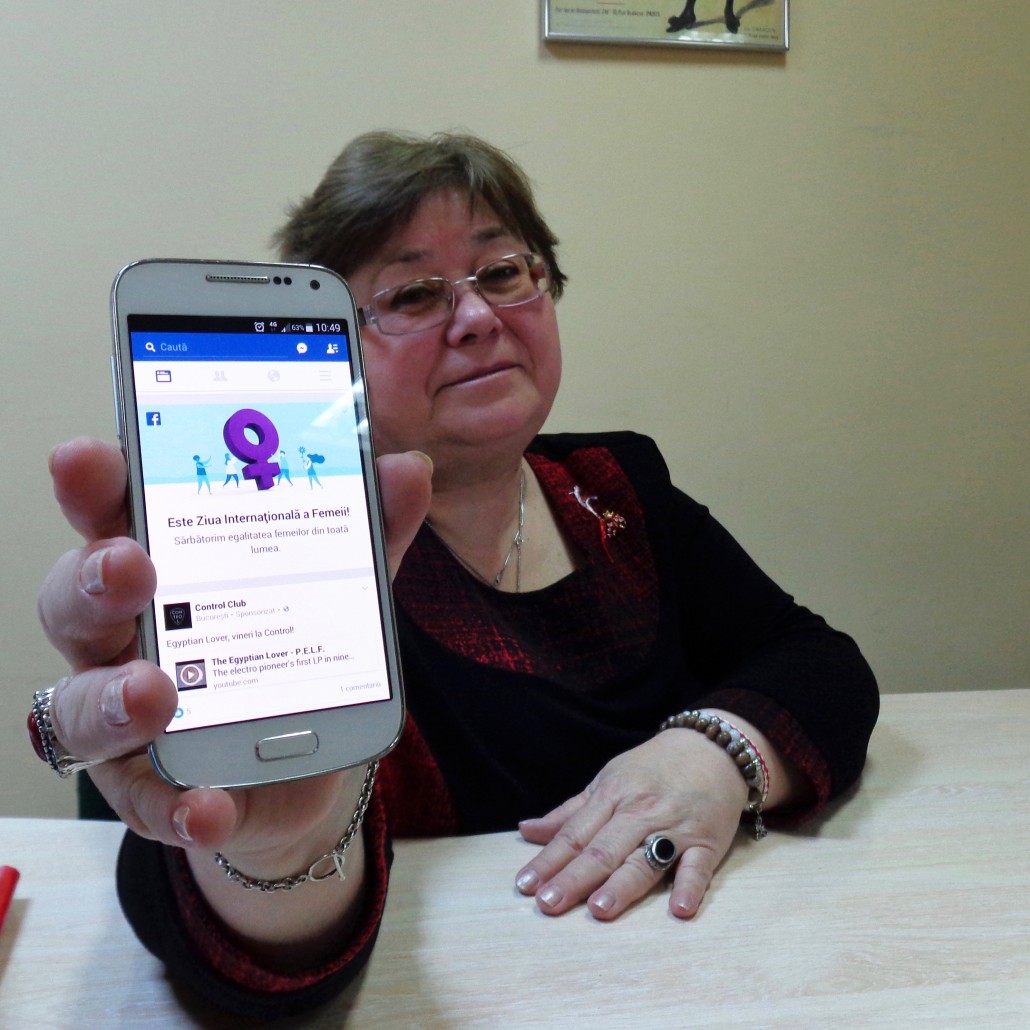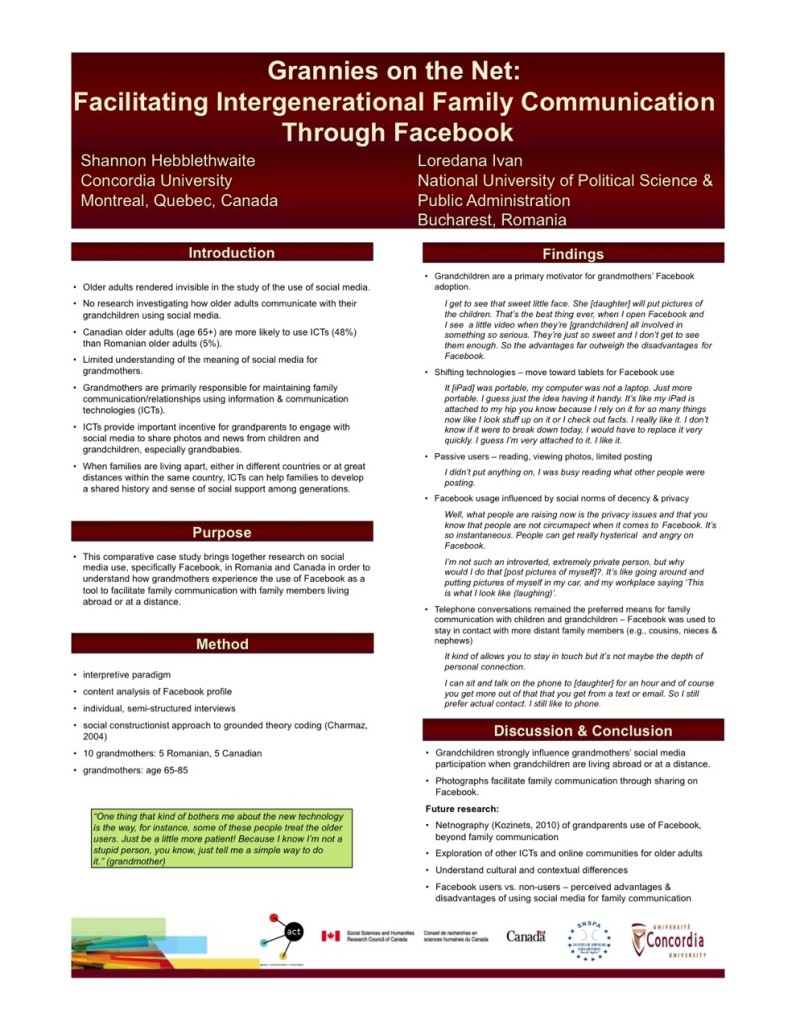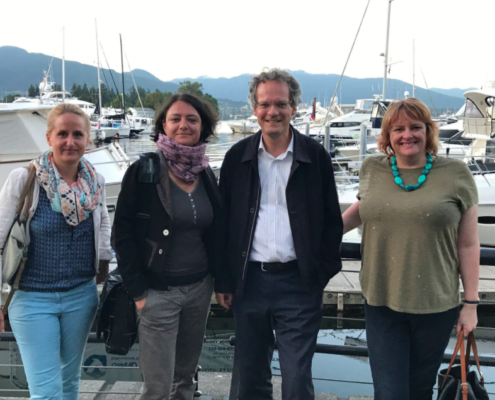The Use of Facebook for Family Communication
This comparative case study brings together research on social media use, specifically Facebook, in Romania and Canada. The purpose of the study is to investigate how grandmothers communicate with grandchildren who move far away from home. Considering Facebook as an emergent, global telecommunication practice, this study will widen the breadth of study on Facebook by including older adults as users of this technology.
Ageing is often accompanied by changes in social interactions, including family communication. In the context of today’s intensive global migration for work and study, older adults are often left behind when children or grandchildren move abroad. The lack of contact with family members can have detrimental impacts on their health and well-being. Information and communications technologies (ICTs), such as Facebook, might offer appropriate mechanisms to facilitate family bonding when their families are geographically dispersed. Furthermore, ICTs provide important incentive for grandparents to engage with social media to share photos and news from children and grandchildren, especially grandbabies. Given that older adults are living longer and healthier lives than ever before, grandparents have increasing opportunities to develop intergenerational relationships when their grandchildren grow and move away from home. When families are living apart, either in different countries or at great distances within the same country, ICTs can help families to develop a shared history and sense of social support among generations. Given the increased role of ICTs in society today, including increasing usage among older adults, it is vital, therefore, to develop a better understanding of the role that ICTs play in family communication experiences between grandparents and grandchildren.
To understand how grandmothers experience the use of Facebook as a tool to facilitate family communication with family members living abroad, Dr. Loredana Ivan and Dr. Shannon Hebblethwaite, along with postdoctoral researchers Alina Duduciuc and Corina Buzoianu, will conduct the research in Romania and Canada using an integrative methodology: 1) semi-structured interviews with women having a Facebook account and relevant family members (grandchildren) living far away from home; 2) content analysis of the Facebook profiles of the interviewed women (demographic info, # of ‘friends’, # of family members involved, frequency of use, etc.; 3) virtual ethnographic research (netnography) of a Facebook online group of older adults focusing on observing family members’ interactions, bonding, and support shared through Facebook. Netnography is a form of ethnographic research adapted to include the Internet’s influence on contemporary social worlds. Kozinets (2010) has published (through Sage Publications) a research primer on this emerging methodology that will guide our study. Findings will better illuminate the role that ICTs play in family communication across generations.
Researchers:
Loredana Ivan, National School of Political Studies and Public Administration
Shannon Hebblethwaite, Concordia University
Collaborators:
Alina Duduciuc
Corina Daba-Buzoianu
ACT Partners:
National School of Political Studies and Public Administration
Concordia University
Project Activities
March 1 to March 7, 2015: Loredana Ivan in Montreal for a working trip with Shannon Hebblethwaite
April 23 to April 26, 2015: Poster presentation at the International Association of Gerontology and Geriatrics European Region Congress 2015 held in Dublin, Ireland
June 4, 2015: Shannon Hebblethwaite presents on Grannies on the Net as part of a ACT panel on Normativities of Age at the Canadian Communication Assocation, as part of Congress of the Humanities in Ottawa, Canada
June 4, 2015: Shannon Hebblethwaite is interviewed by CBC Homerun about her research project.




